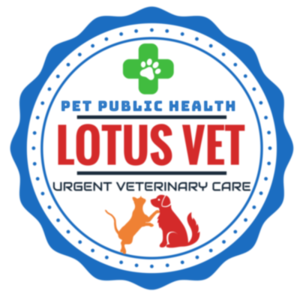Vaccination is also important in preventing fatal and debilitating diseases. Puppies are vaccinated against distemper, infectious hepatitis, adenovirus, parvovirus, parainfluenza and leptospirosis.
The first vaccination is given after 6 weeks of age. The second vaccination is given at 10 weeks - or 2 weeks after the first vaccination if the puppy received it after 10 weeks.
Then they receive an annual booster vaccination to maintain a good level of immunity. Dogs going into boarding kennels need an additional vaccination against Kennel Cough.
This can be given ideally at least 10 days before being kenneled but as protection lasts for 1 year, this can also be given annually.
Kittens need to be vaccinated against cat flu (feline herpes virus and feline calicivirus), panleukopenia (also known as feline enteritis) and feline leukemia (a common cause of cancer in cats).
The first vaccination is given at 9 weeks old and the second vaccination is given at 12 weeks old, or 3 weeks later if older than 12 weeks.
Cats also need annual boosters to give them a good level of immunity. They do not need any additional vaccinations before going to kennels.
Dogs and cats need to be vaccinated against rabies. This is given through 1 injection after 12 weeks old. Boosters are given annually.
For pets travelling abroad, a blood test is taken 30 days after the vaccination to ensure there has been an adequate immune response.
Our Clinic offers education on several Parasite Control Programs.
The most common parasites pet deal with are fleas and ticks. Fleas and ticks are capable of transmitting infection and diseases to pets through a single bite. Many pets also suffer from severe allergic reaction to the bites of fleas and ticks. Internal parasites (such as worms) are also capable of causing severe illness in pets. It is imperative that owners use one of the many commercially available products that protect pets from these parasites in order to maintain their pet’s health.
Our staff and veterinarians will help you choose the correct product based on your pet’s risk factors and health status.
In addition, because of the damages posed by intestinal parasites to both pets and people, all dogs and cats should have at least one fecal examination per year to test for intestinal parasites (e.g., roundworms, hookworms, giardia).
We generally recommend to regularly deworm your adult dog and cat once every three months. Please contact us for further details.
Permanent identification:
We recommend that a collar and ID tag be worn by all pets who have any outdoor access. All pets should also be permanently identifiable by placement of a small chip known as a microchip just underneath the skin. This is a very simple procedure performed by injection, and it is over in a matter of seconds! However, the benefits are lifelong. If your pet was ever lost, (nobody means to lose their pets but it happens all too often), this microchip could be used to trace it back to you by any veterinary clinic, rescue society, or shelter with a microchip scanner. Scanning for a microchip is the first thing done when any stray arrives at these facilities without a known owner. Making sure your pet is microchipped is the most effective and permanent means by which you can ensure your pet is identified and will find its way back to you. Many countries require microchip identification for travel; if you plan on traveling now or in the future with your pet, please call us today to make an appointment to discuss the matter.
Health Certificates:
Before an airline can accept your dog for transport or travel, a representative must see a recent health certificate supplied by your veterinarian.
Your veterinarian will need to examine your pet in the consulting room before they can fill out the health certificate. The exam determines whether your pet is in good health and fit to travel or not. Depending on the destination, certain requirements are required to be filled. Please ask your veterinarian.
Check the airline you wish to travel on for the latest rules on how far in advance you can get your health certificate.
Put your health certificate in a safe place — maybe with your airline ticket — so you don't forget to take it to the airport.

